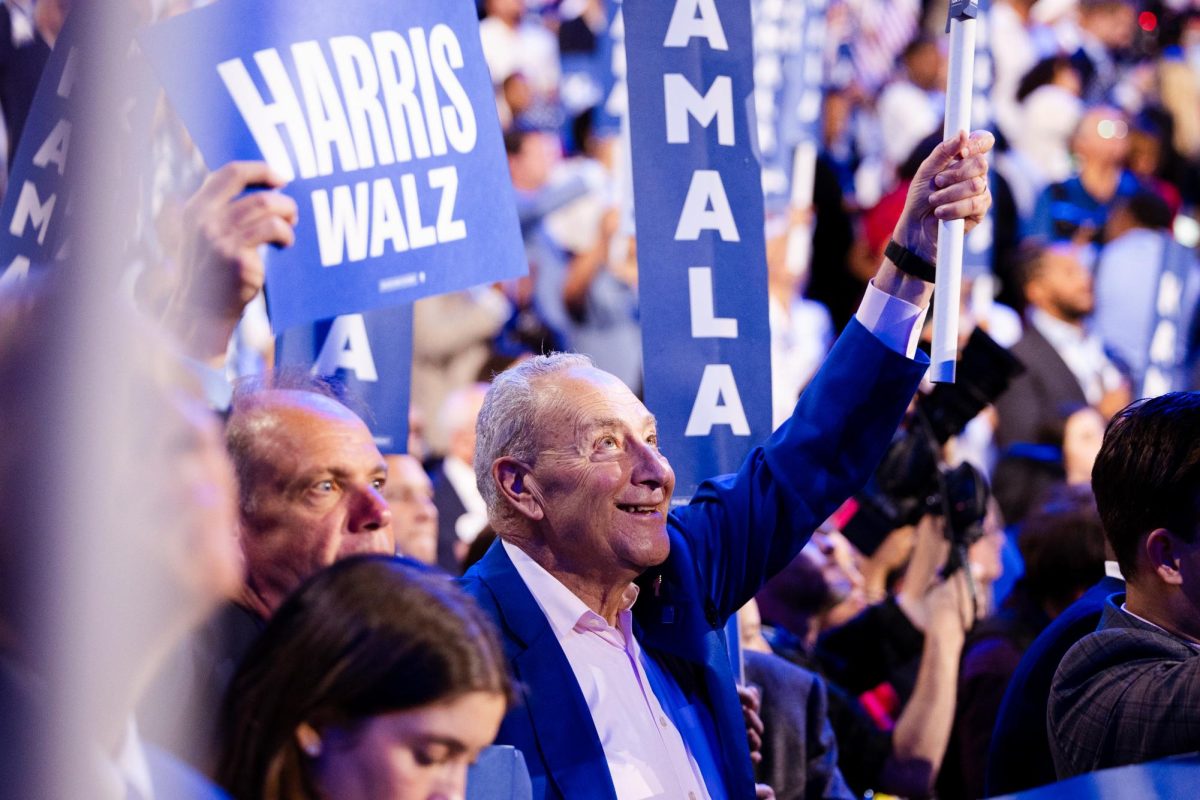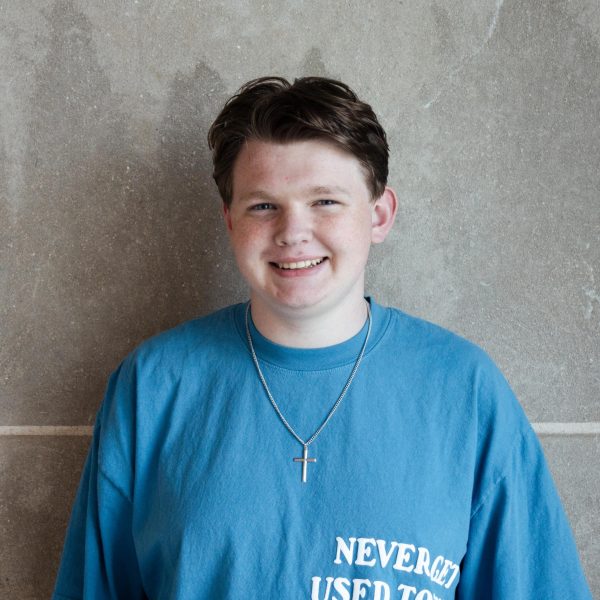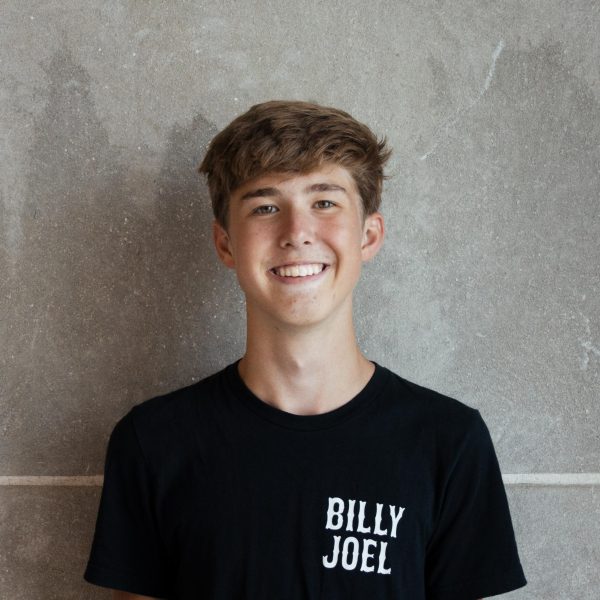The Central Times is sending two journalists daily to the Democratic National Convention in Chicago from Aug. 19-22. This was made possible by the Illinois Journalism Education Association. Read more of our coverage from the DNC at centraltimes.org.
The Democratic National Convention was held from Aug. 19-22 in Chicago. There, 4,695 delegates from 57 delegations representing every U.S. state and major territory converged to adopt the party’s policy platform and formally announce the Democratic nominee for President and Vice President.
The delegates announced their votes on Tuesday, Aug. 20 during a DJ-led roll call that featured Illinois Gov. J.B. Pritzker, New York filmmaker Spike Lee and a live performance of “Turn Down for What” by Lil Jon from Georgia.
“It was so exciting,” said Beatrice Schierer, a 17-year-old delegate from Minnesota’s seventh congressional district and the second-youngest delegate at the DNC. “It was so cool to just feel this electric energy in the crowd and how excited people were to nominate [Vice President Kamala] Harris.”
Delegates are chosen during the state’s Democratic primary elections, where each district elects their representatives to the DNC. Most states, including Illinois, divide districts by congressional boundaries, although some states use state legislative districts instead.
States also elect a number of Party Leader and Elected Official delegates and at-large delegates that represent the entire state at the DNC. Illinois has a total of 177 delegates, 49 of which are PLEO and 32 are at-large.
“My job at the end of the day is to make sure that I cast my ballot towards who I want to be the presidential nominee,” said Zack Dunn, a delegate from Missouri’s third congressional district. “As a delegate, I cast a vote; that’s a very simple thing and anybody could do that. But I think what’s important is that we’re able to translate our values and our vision for the future to make sure that we’re supporting our communities and supporting our country.”
Usually, delegates are divided as either “pledged” or “unpledged,” meaning that they committed (or didn’t commit) to vote for a specific candidate at the DNC. This year, however, all delegates were unpledged after President Biden dropped out of the race on July 21.
“Those of us who were pledged delegates were all pledged for President Biden, so that obviously changed [and] essentially we were released,” said Paul Harper, a delegate from Missouri’s third congressional district. “I was going to vote for Kamala Harris as Vice President. It makes no sense for me not to say ‘yes’ to [her being] president because, quite frankly, I think she’ll do a good job.”
Harris and Minnesota Gov. Tim Walz won the party’s nomination with 4,563 delegates (98.9% of participating delegates). The remaining 52 delegates voted “present,” many in opposition to the Biden-Harris policy agenda in the Israel-Hamas war.
“They’re trying to influence their leadership [and] they may be having an effect,” said Rory Hoskins, a delegate from Illinois’ seventh congressional district. “I think that most convention-goers are somewhat sympathetic to their cause. No one wants to see a war.”
Forty of the uncommitted delegates staged a sit-in to advocate for the DNC to include a Palestinian speaker during the last night of the convention. In the United Center main concourse, delegates prayed while wearing keffiyehs, a traditional Arab headdress often worn as a scarf that has come to represent solidarity with Palestinians.
“Undoubtedly, peaceful protests [are] a fundamental right under our Constitution under the First Amendment,” said Rep. Steven Horsford, a PLEO delegate from Nevada. “They are speaking up, many of them, for issues around peace for Palestine, for a ceasefire, for the release of hostages and an approach towards peace—that is something all of us can work towards.”

Although the convention concluded without a Palestinian speaker, other delegates are hopeful that Harris will broker a ceasefire deal in Gaza as president, a goal she emphasized in her acceptance speech on Thursday, Aug. 22.
“President Biden and Vice President Harris are working around the clock to get a ceasefire in Gaza,” said Jaheem McLaurin, a PLEO delegate from South Carolina. “There is commitment that across the country, [Harris and Walz are] showing that they care about people’s voices and they’re listening to them.”
McLaurin is 21 years old, making him one of the youngest PLEO delegates at this year’s DNC. He thinks the Harris-Walz ticket is the best choice for young voters in the 2024 election.
“President Biden and Vice President Harris have shown up for us,” McLaurin said. “The top three issues [young voters] care about are student loan forgiveness, climate change and gun violence prevention—on all three of those they have delivered.”
That message was echoed by Isaac Winkler, a delegate from Minnesota’s fifth congressional district. He turns 18 just three days before the election, making him the youngest delegate at the convention.
“They believe in a democracy, and I think that’s something incredibly important for all young people,” Winkler said. “Issues that young people care about are also what’s at stake on the ballot. The vast majority of people my age and my peers know that the climate crisis is real; they don’t deny that there’s a general understanding that it exists and a need to solve it. That’s something the Harris-Walz ticket understands and is trying to work towards.”
Across all four days of the convention, delegates were excited for the future of America.
“I’m really excited for this election. I think that this is a turning point election,” Harper said. “We can either choose to move our country forward, or or we can choose to move our country back, and I think the choice is clear: Kamala Harris and Tim Walz are the people to do it.”
Jay Deegan contributed to this story.






